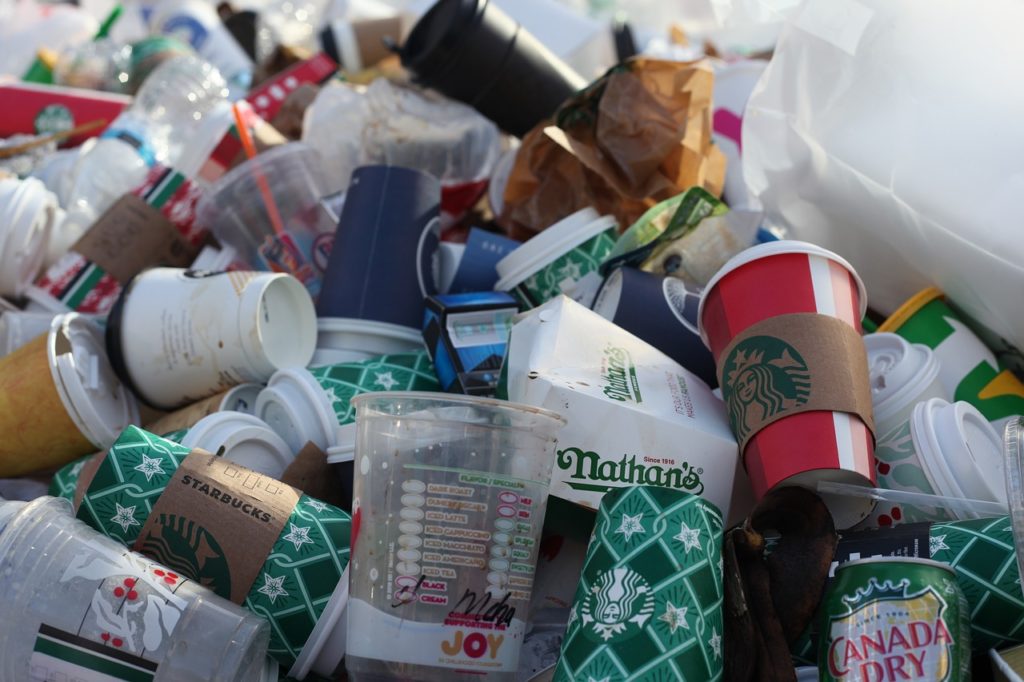little steps to go plastic-free – 5 easy ways to make big changes
In the past 10 years, one of the biggest topics we faced the most is the plastic consumption the population deal with every year.
After more than a century of this material being in our daily lives, we are facing an unfair overproducing of it and an overpollution in our air, soil, rivers, seas and water in general. This is why people are thinking to start a plastic-free lifestyle and many others have already begun to cut it off completely from their life.
But there are different perspectives about this: some people will be “I need all this plastic in my life, from cosmetic care to groceries shop, anyway I will recycle my plastic waste and someone else can go plastic-free”, or “I am thinking to go plastic-free but it seems so hard just to start, so maybe from tomorrow” and the positive and brave people will be like “I really believe we all can cut off most of our plastic waste, by learning the easiest ways first and then, take the next steps to go to a completely plastic-free lifestyle.”
Who do you recognize yourself in?
As of today, I would say, it is not impossible to avoid the problems this material is causing. It is so visible that we are polluting the planet – every day around 6 to 12 million pieces of plastic makes their way into our oceans – and the estimated plastic waste in a total of 5.25 trillion of macro and micro pieces of plastic into the seas. An Australian study by the Commonwealth Industrial and Scientific Organization (CSIRO) reported roughly 14 million tonnes of microplastics are seated on the seafloor and a total of 165 million tonnes of plastic currently circulates in Earth’s marine environments. Of course, the water and their fauna are not the only ones to be affected, the soil absorbs harmful chemicals and the microplastic spreads everywhere.

How to go plastic free?
In this article, I will write the 5 easier steps to go plastic-free, based on my experience. If you make it all the way here to read this post, it is already a big step you are doing. Acknowledge this problem and begin to fight against it, is all you need to make these big changes.
1 – Say NO to sigle use plastic
I have been working in amazing restaurants for the last 10 years, many of them with a very large capacity number. Kitchens where sometimes you have no time to go toilet either, as busy we were the majority of the food we cooked was pre-portioned in a single-use poly cup and wrapped up with cling film to keep it fresh. I was always disappointed when I was portioning a thousand of them weekly, this is one of the reasons why I decided to get away from the kitchen – I know the problem has to be faced, hospitality waste is such a huge thing in number. –
The plastic consumption by this “single-use plastic” is everywhere around us, and sometimes we think we can’t beat it. Water bottle and plastic-wrapped sandwiches for lunch, everything placed in a plastic bag to carry out the shop for the 5 minutes before throwing everything away. And many other examples can be the coffee cup for takeaway, fruit and vegetables plastic wrap, straws and infinity more…
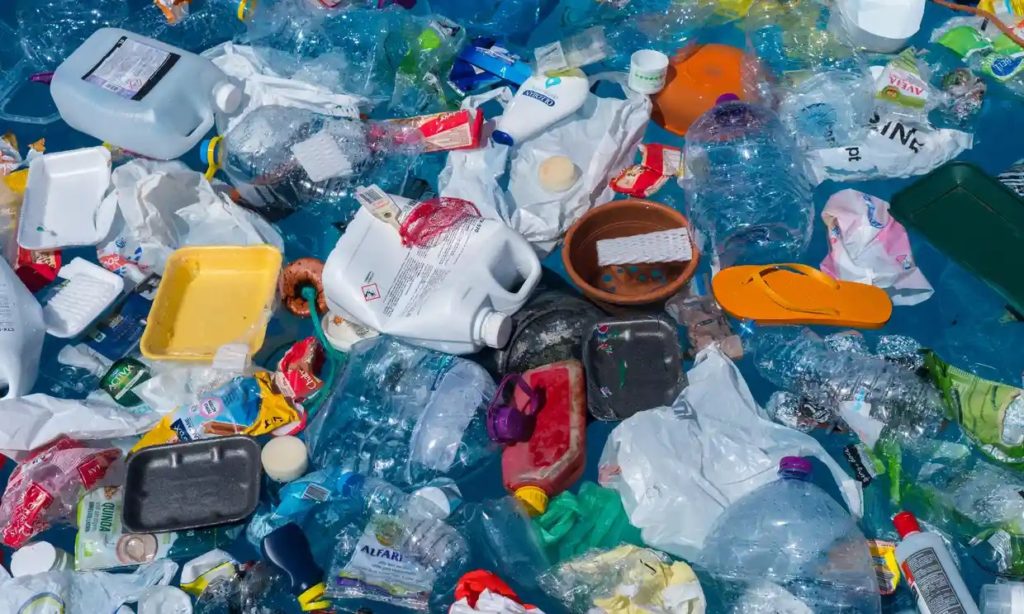
While you are thinking this plastic can all be recycled and the problem is solved, yet cannot be, as only 9-10% of the plastic we produce is recycled. This is the first step to go plastic-free, most, if not all, this single-use waste can be avoided by replacing some of your habits. Get an insulated water bottle, so you can use it always to carry your own water and make sure you get the daily intake. The same will be for your coffee cup, you don’t necessarily have to buy a reusable coffee cup – if you would like to start this as an eco friendly but still looking after your finances – the alternative are many, use your own mug, use a recycled glass jar (yes, that one used to have tomato sauce inside) or find a second hand one.
A very important tip is learning to say no to single-use plastic, at the supermarket for example, start to bring your pre-used plastic bag to carry the shop back home or a backpack. Try to avoid places where everything is wrapped individually in plastic, fruit, vegetables at most.
Some products are good to be bought in bulk, such as rice, toilet paper, flour, oat and thousands more. Check for a Bulk shop around your area, you will see that your area might have one.
2 – change your liquid cleasing routine
When I was a child I spend such a long time in my grandparent’s village, playing with the other children and my two brothers, we were running the whole time on the main road not to be late for our lunch at home. When shower time was coming and my grandmother was making the water warm, she would have started to clean out our dirt from the soil and grass by using a solid shower bar. This is something I always remember when I go back to visit them, they were making their own soap, for hands and for the shower.
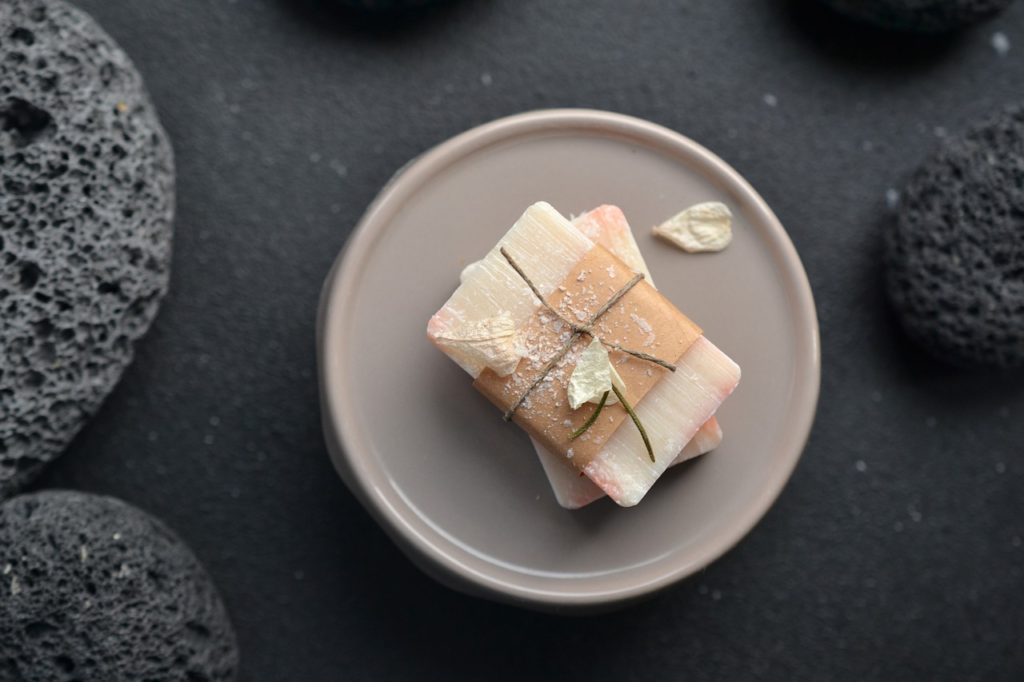
I’m not saying you should produce your own shampoo, shower bar or other – if you would like to know more I’m studying to make my own cleansing bar and beauty products. – Nowadays the number of brands that are starting to go green and plastic-free is enormous, most of them are new brands and they start their business already aware of the damage from plastic and other harmful chemical substances. You can easily walk into a supermarket or a pharmacy and get your shampoo bar, a shower block, a cream deodorant and other cleansing product. If you don’t fancy the solid bars you can find some product sold in glass jars or metal bottles, and the brand might provide a refill service.
3 – swop daily used product
How many times have you bought toilet paper wrapped in a plastic bag, and maybe with an ecological stamp on it? Well, how can something be eco friendly if the packaging comes in plastic?
It is still difficult to find in the normal supermarkets some eco-friendly products such as toilet paper, toothbrushes, laundry and house cleaning products; but fortunately, some eco supermarket chains are there to help you instead. The variety of house product you can start to swop are so many, there is brand like Naked Sprout, a UK bamboo paper producer that will dispatch your toilet or kitchen rolls in a bamboo box, and as well “Who gives a crap” an Australian company, which provides worldwide shipping and wrap individually the rolls with colourful recycled paper.

Here is a little list of easy things that can be swopped for a plastic-free alternative:
- A normal toothbrush for a Bamboo toothbrush
- Make up removal pads and products for Reusable cotton round and coconut oil
- Bleached toilet rolls and kitchen paper for a recycled, unbleanched or bamboo and plastic free option (as said)
- Disposable razor with a safety razor
- Conventional dish soap for a eco friendly dish soap or soap bar
- Dish sponge for a compostable and reusable dish brush
- Plastic wrap for a reusable beeswax or soywax wrap
- the list can be endless but as begginer to this world I would start with these listed above
4 – buy from plastic free bulk shop
The fourth step of the plastic-free challenge is a very important and decisive step, as we all might have realized the biggest plastic waste comes from groceries shopping. Yet, a good sustainable choice can be buying from bulks shops and plastic-free shops. These shops have the goal to reduce to the minimum food and plastic wastage, their shopping experience is very unique in my view. These minimal, still with warm environment shops, show you the ingredients in bulk quantity and you can collect them in a pre-owned container or by buying them from the shop (they will previously weigh them empty). And the best thing is that not only food is sold there, whether you want to buy flour, pasta, nuts, shampoo, liquid detergents, plant-based milk and lots more. I can tell you guys, by purchasing in these shops you will see a huge amount of plastic we can avoid only with our groceries shopping.
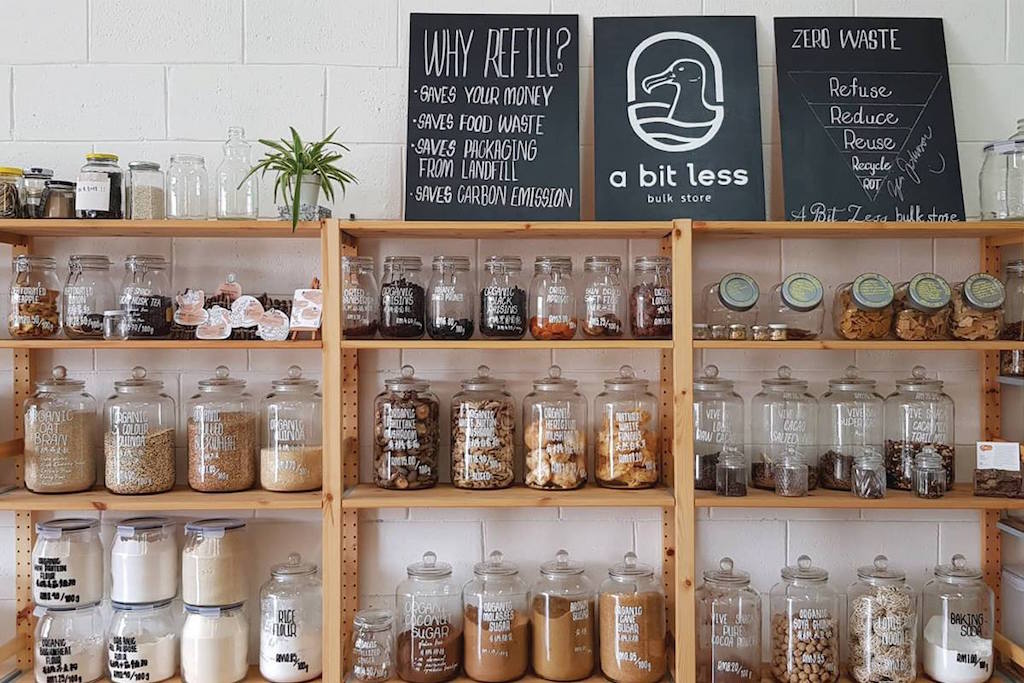
The price are very affordable and the best thing is that you can buy even a little amount, so what you will need at that moment, avoiding to buy a big package that will stay forever in your cupboard and maybe even go off. There are many of these shops in most of the big cities if you have the chance google it and make sure to at least try it, you will love it I promise.
Good options for fresh groceries are the farmer markets, where the plastic usage is very minimum, indeed they do prompt you to bring your own bag or containers; and of course, the ingredients are fresh, seasonal and super tasty (some are organic too).
5 – Last but not least: Recycle
Perhaps the easier thing to do, as at last for your plastic-free challenge, is to recycle as much as you can. The stunning thing is that you will realize after have followed the first 4 steps, the amount of plastic you will need to recycle it’s become a lot less than it used to be before. So it will be made your recycling process easier and less stressful.
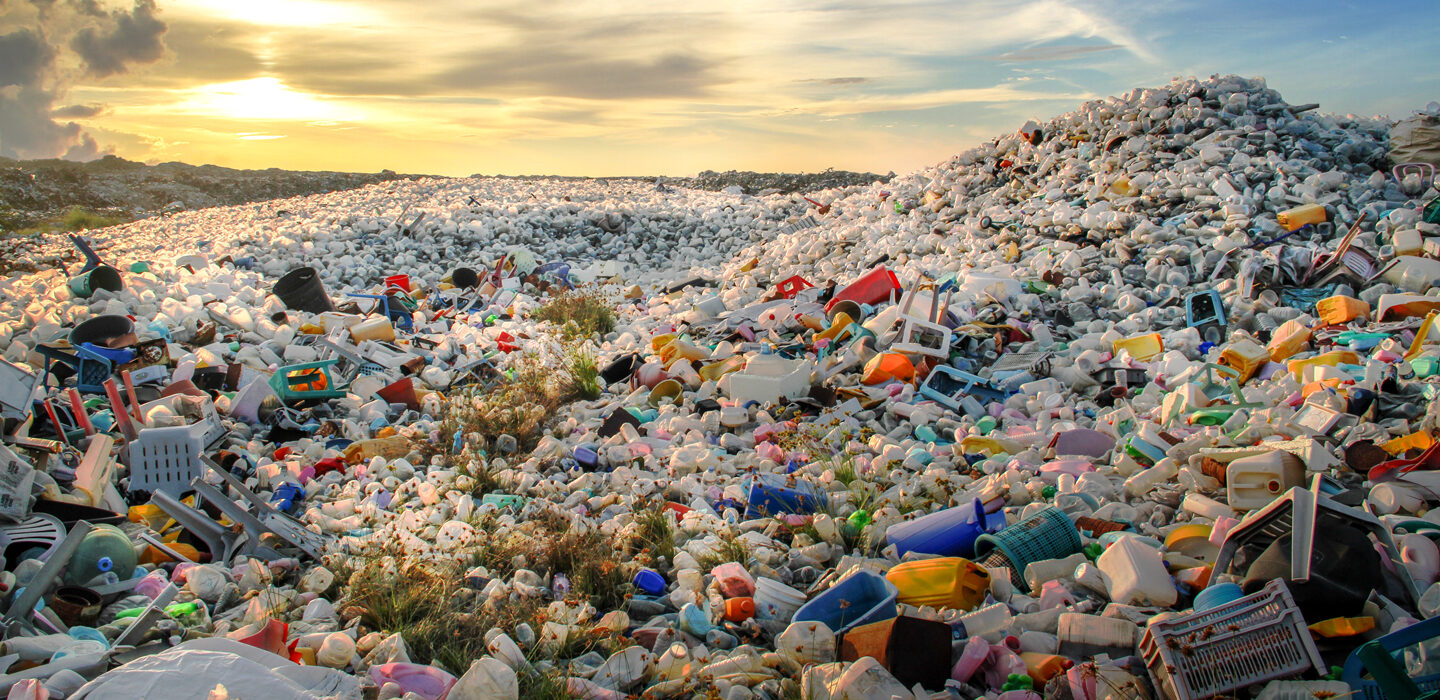
The recycling techniques seems to have begun when the Industrial Revolution had a big boom in the biggest countries. It then become a homely solution during the “great depression” in 1930-1940; as the economic crisis gave the population the need to reuse and regain from the daily wastage. Another big “recycling period” in history was during World War II, the necessity of war requirements, gathered the population with a specific material recycling system (nylon and metals the most) dealt with strong patriotic sense. Unfortunately when the war was over most of the countries gave up recycling, and considered landfills the best solution for all the waste. We had to wait until the 60s- 70s to face this problem again, in 1970 with the first environmental movement and the first Heart Day. Among the reasons that determined this action, there was the necessity to decrease the amount of waste was ending at landfills.
As of today, we see this waste problem smaller since we don’t face it daily. Most landfills are placed far away from the own country producer; unfortunately, the pollution created from this rubbish produce harmful substances that are able to reach the nearest aquifer and so to reach our water.
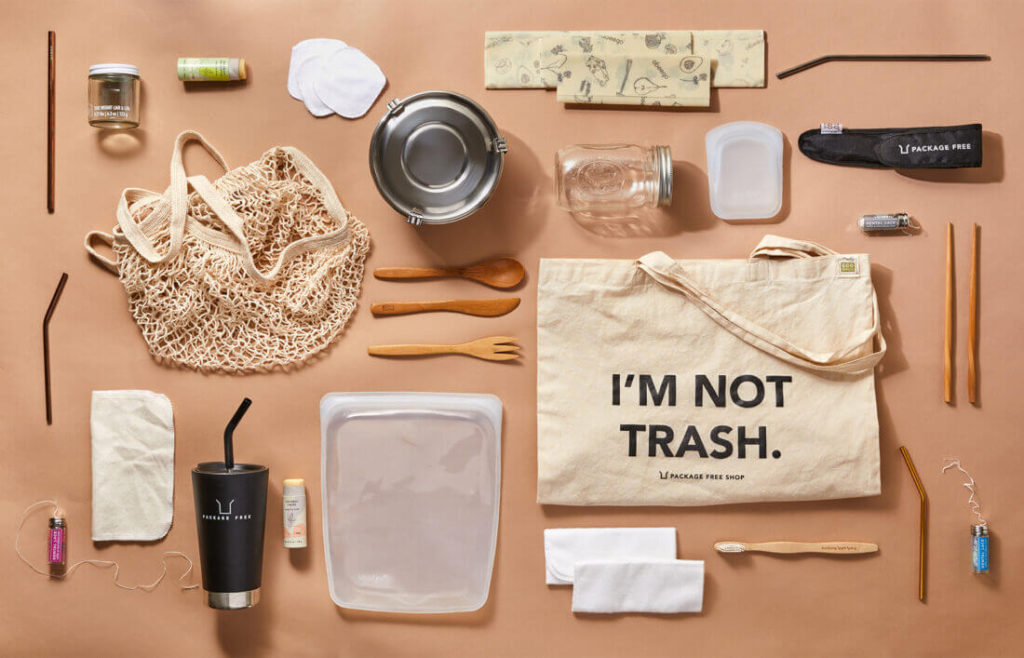
These are the 5 little steps to make big changes in our world, and it has to happen TODAY, from US and for our life and the next coming. I have a strong belief that you, ending up reading this article, have the power to make your own change and share it with your beloved, because the more noise we all make, the sooner we will bring about lasting changes in plastic use.
I hope you enjoyed this article and I can’t wait to hear about how your plastic-free challenge is going with your life.
Did you find this post helpful? Leave a comment below, share with your friends and follow me on Instagram.
little steps to go plastic-free – 5 easy ways to make big changes Read More »

